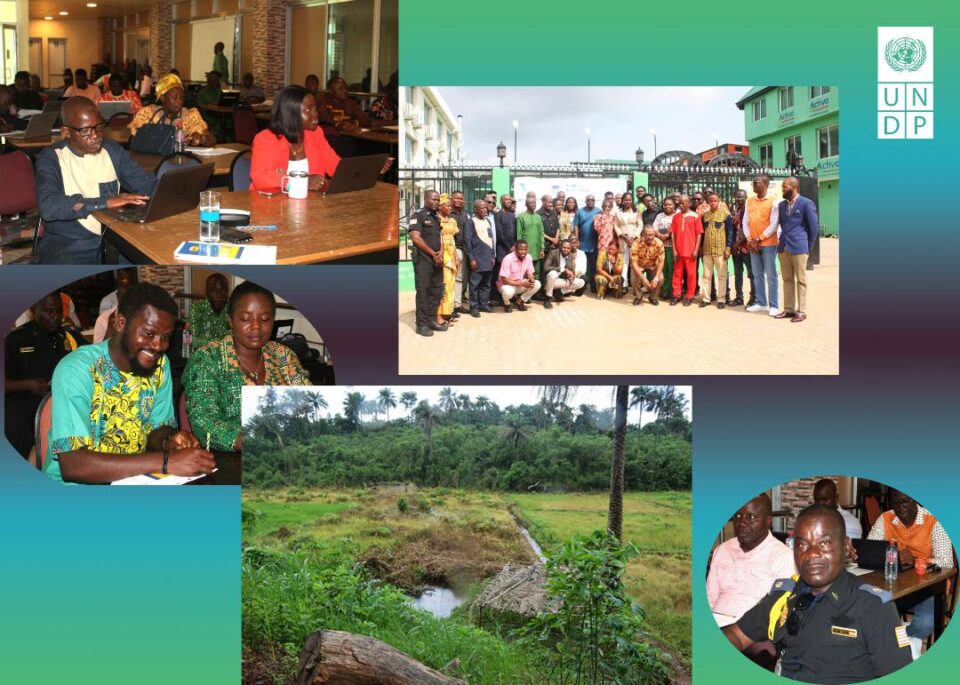Monrovia, Liberia–The Environmental Protection Agency (EPA) partners with UNDP to facilitate a two-day validation workshop on the National Biodiversity Strategy and Action Plan (NBSAP), a UNDP press release says.
The event, held in Ganta, Nimba County, on April 1-2, 2025, was supported under the Community-Based Forest Management (CBFM) project, with funding from Sweden, to refine and finalize the draft National Biodiversity Strategy and Action Plan (NBSAP), including its communication strategy, implementation plan, and monitoring and evaluation framework.
The EPA’s Executive Director, Dr. Emmanuel K. Urey Yarkpawolo, emphasized that the workshop marks a significant step in Liberia’s journey toward environmental sustainability.
Dr. Yarkpawolo highlighted Liberia’s rich biodiversity, including its Upper Guinean rainforests and coastal ecosystems, which he said are critical to Liberia’s survival and livelihoods.
“There is a need for collective ownership of the NBSAP, with stakeholders from diverse backgrounds contributing to the process to ensure the plan reflects the realities and aspirations of all Liberians,” said Dr. Yarkpawolo.
He also noted that Liberia’s biodiversity goals must align with global initiatives such as the Kunming-Montreal Global Biodiversity Framework (GBF) and the national development agenda, particularly the ARREST agenda.
Dr. Yarkpawolo expressed gratitude to UNDP and Sweden for supporting the drafting of key strategic documents. They include the NBSAP Implementation Plan, the Monitoring and Evaluation Framework, and the Communication Strategy.
“These documents form the foundation of Liberia’s renewed efforts to halt biodiversity loss, sustainably manage ecosystems, and ensure equitable benefit-sharing of genetic resources, the EPA Executive Director noted.
For his part, UNDP’s Team Leader for Inclusive Green Growth, Dorsla Farcarthy, stressed the urgent need for action to address forest degradation, improve livelihoods, and promote sustainable forest management practices.
Farcarthy pointed out that many rural communities depend on subsistence farming and forest resources for survival, but these practices often lead to environmental degradation.
“Sustainable economic alternatives are necessary to balance the needs of local populations with conservation goals, he noted.
Farcarthy also mentioned that Liberia, as a biodiversity hotspot, faces increasing temperatures and environmental challenges over the next decade, making urgent action on natural resource management even more critical.
He called for an improved conservation strategy and greater integration of environmental sustainability into public discourse and policy to address the challenges of deforestation driven by commercial logging, agricultural expansion, and unsustainable land use practices.
The NBSAP is designed to serve as a strategic framework for the sustainable management and conservation of Liberia’s biodiversity, in line with the United Nations Convention on Biological Diversity (CBD) and the United Nations Sustainable Development Goals (SDGs).
The plan will help guide national efforts to address deforestation, species loss, and other biodiversity-related challenges while promoting sustainable development.
The validation workshop provided a platform for key stakeholders to review, discuss, and align the draft NBSAP with Liberia’s biodiversity priorities and the country’s broader development goals.
It underscores Liberia’s commitment to sustainable biodiversity conservation, fostering collaboration among all sectors to safeguard the natural heritage for future generations.
Participants include government representatives from line Ministries, Agencies, and Commissions (MACs), Non-Governmental Organizations (NGOs), community groups, civil society organizations, academic institutions, development partners, and the Food and Agriculture Organization (FAO), jointly implementing the CBFM project with UNDP.
Liberia joined the United Nations Convention on Biological Diversity (CBD) in 1994, acknowledging the importance of international cooperation in conserving biodiversity.
Liberia’s rich biodiversity, including its vast rainforests, endangered species, and diverse ecosystems, underscores its commitment to biodiversity conservation.
However, growing pressures from economic development, population growth, and unsustainable land use practices pose significant threats to the country’s natural resources.

